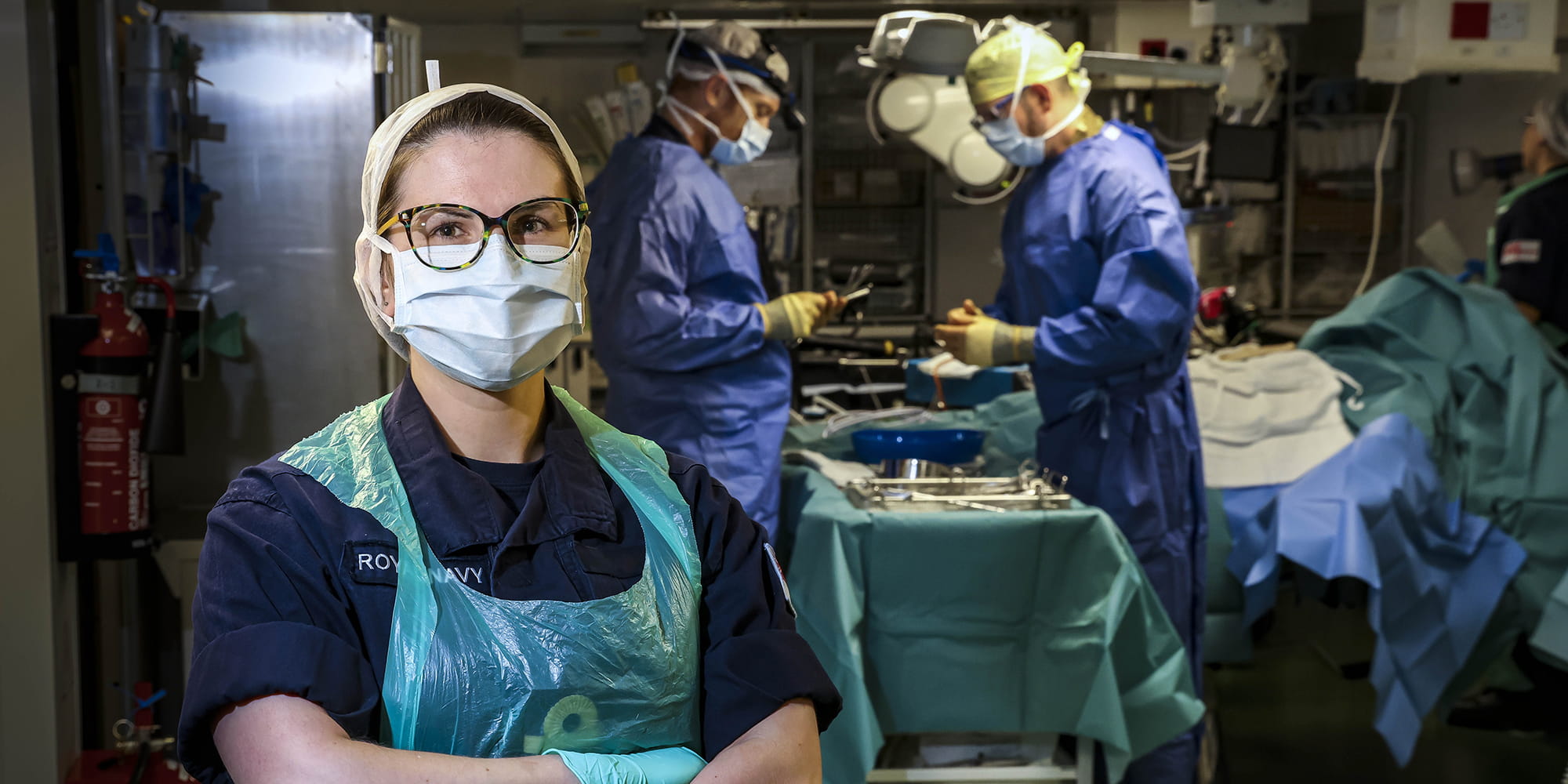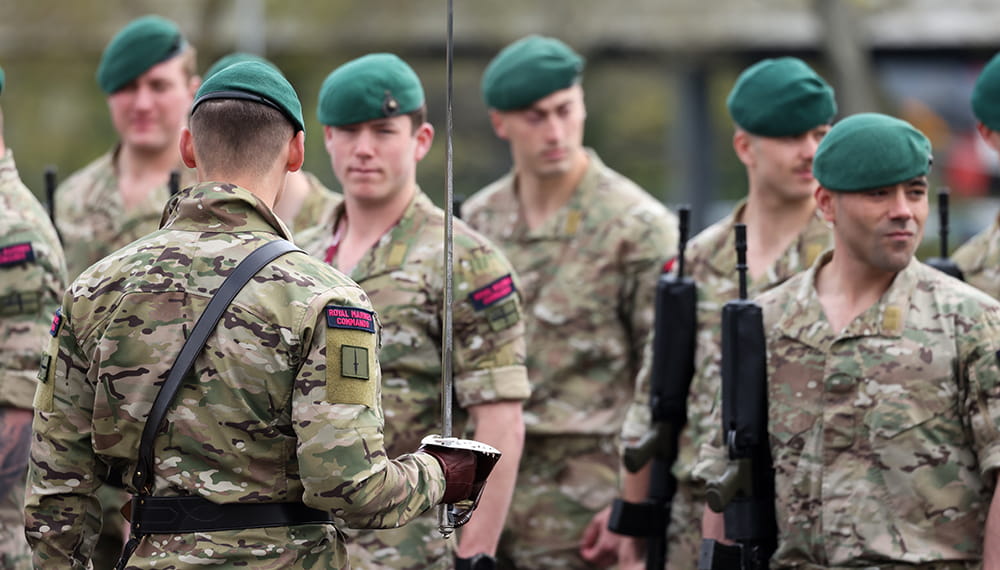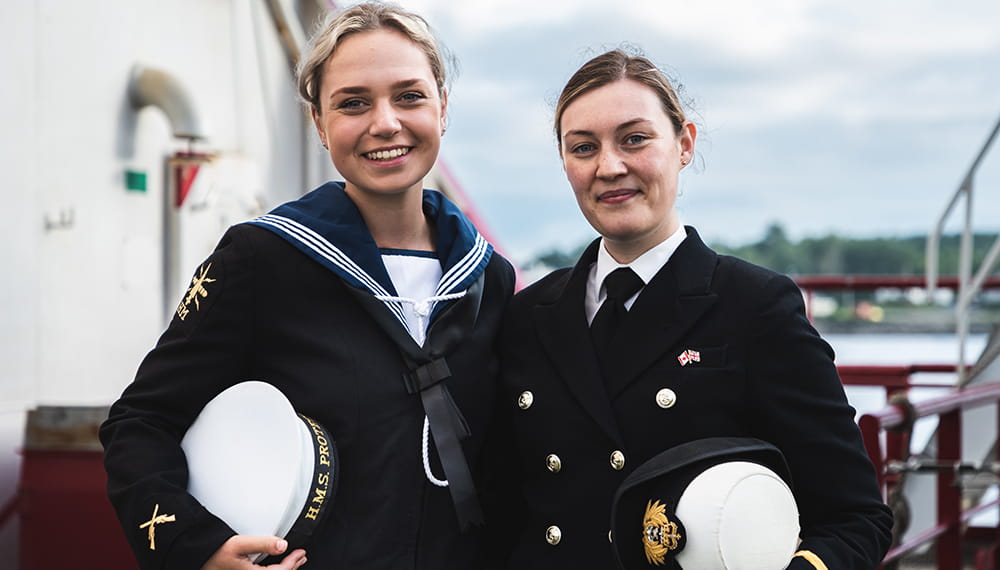Work life
Often demanding, sometimes testing. It’s about as far away from a typical 9 to 5 as you can get. That's why we’ll give you everything you need to be the very best.

Your first year
As a rating
First day
From lots of paperwork, to a new haircut, there’s a huge amount to take in. It’s time to start getting to know people, who will probably feel equally nervous. Remember, you’re all in the same position and our training teams are there to support you.
First week
An introduction to drills, discipline and lots of physical exercise. You’ll be constantly on the go, from kit preparation (which involves a lot of ironing) marching and circuit training, to lectures and lessons.
First month
With constant instruction, your Naval skills will start improving (from drills to weapon handling), your fitness levels will be up to standard, and you’ll begin feeling like you’re a part of the Royal Navy.
Passing-out
You’ve officially earned your place in the Royal Navy. The Passing-out parade is a great day for family and friends to celebrate your hard work and everything you’ve achieved.
First year
You’ll start to really get your teeth into the professional training that’s specific to the role you’ve chosen.
As an officer
First day
There’s a huge amount to take in, naturally. It’s time to start getting to know people, who will probably feel equally nervous. Remember, you’re all in the same position.
First week
You’ll start to settle in to your surroundings, living arrangements and the new team around you. Nerves are natural; everyone gets them.
First month
Things will start to settle down after week three’s infamous Frantic Friday (see ‘What happens’, below). You’ll start to feel like you’re getting to grips with the Royal Navy, and the sense of achievement that goes with it.
Passing-out
You’ve officially earned your place in the Royal Navy. The Passing-out parade is a great day for family and friends to celebrate your hard work and everything you’ve achieved.
First year
Your branch- and role-specific specialist training will be intensive, with regular lectures and practical work to complete, as well as regular assessments to pass.

Work life is a little different in the Marines
